Filter by
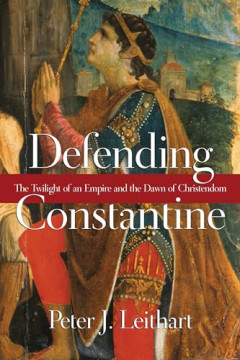
Defending Constantine
- Edition
- -
- ISBN/ISSN
- 978-0-8308-2722-0
- Collation
- Soft cover, 373 hlm, 15x23 cm
- Series Title
- The twilight of an Empire and the Dawn of Christendom
- Call Number
- 270.1092
- Edition
- -
- ISBN/ISSN
- 978-0-8308-2722-0
- Collation
- Soft cover, 373 hlm, 15x23 cm
- Series Title
- The twilight of an Empire and the Dawn of Christendom
- Call Number
- 270.1092
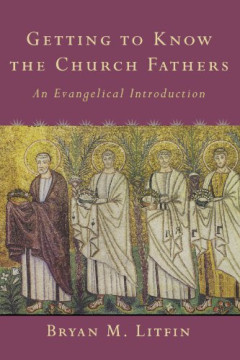
Getting To Know The Church Fathers: An Evangelical Introduction
Augustine. Tertullian. Origen. For too many Christians such names are abstract, one-dimensional legends, innocuous voices from antiquity no longer relevant to modern needs and concerns. However, a closer look at these church fathers reveals writers whose reflections on the apostolic teachings edify all generations of believers. Bryan Liftin helps readers understand the fathers as individuals wh…
- Edition
- -
- ISBN/ISSN
- 978-1-58743-196-8
- Collation
- 301 hlm.; Soft Cover 15 x 23 cm
- Series Title
- -
- Call Number
- 270.1
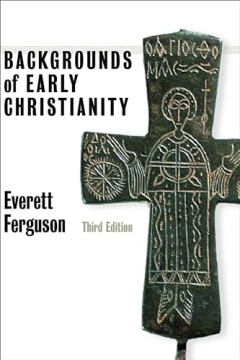
Background of Early Christianity
Having long served as a standard introduction to the world of the early church, Everett Ferguson's Backgrounds of Early Christianity has been expanded and updated in this third edition. The book explores and unpacks the Roman, Greek, and Jewish political, social, religious, and philosophical backgrounds of a good historical understanding of the new testament and the early church. New to this ad…
- Edition
- 3
- ISBN/ISSN
- 9780802822215
- Collation
- Softcover; 647 hlm.; 16.59 x 24.13 cm
- Series Title
- -
- Call Number
- 270.1
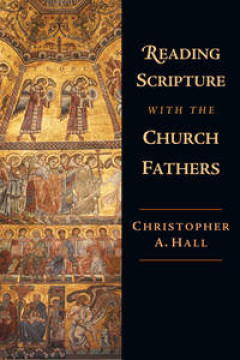
Reading Scripture With The Church Fathers
Many Christians today long to become reacquainted with their ancient ancestors in the faith. They see a deeper worship and devotion in the prayers and hymns of the early church. And they believe that the writings of the early church can shed new light on their understanding of Scripture. But where and how do we begin? Our first encounter with the writings of the church fathers may seem like vis…
- Edition
- 1
- ISBN/ISSN
- 9780830815005
- Collation
- Softcover; 225 hlm.; 13.87 x 20.98 cm
- Series Title
- -
- Call Number
- 270.1
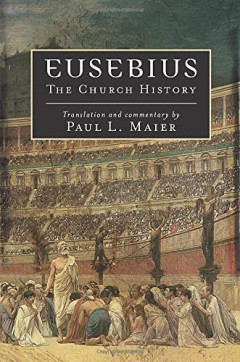
Eusebius: The Church History
Often called the "Father of Church History," Eusebius was the first to trace the rise of Christianity during its crucial first three centuries from Christ to Constantine. Our principal resource for earliest Christianity, The Church History presents a panorama of apostles, church fathers, emperors, bishops, heroes, heretics, confessors, and martyrs. This paperback edition includes Paul L. Maier'…
- Edition
- -
- ISBN/ISSN
- 9780825433078
- Collation
- Softcover; 368 hlm.; 13 x 20 cm
- Series Title
- -
- Call Number
- 270.1

Augustus to Constantine: The Rise and Triumph of Christianity in the Roman World
This masterful study of the early centuries of Christianity vividly brings to life the religious, political, and cultural developments through which the faith that began as a sect within Judaism became finally the religion of the Roman empire. First published in 1970, Grant's classic is enhanced with a new foreward by Margaret M. Mitchell, which assesses its importance and puts the reader in to…
- Edition
- -
- ISBN/ISSN
- 9780664227722
- Collation
- Softcover; 392 hlm.; 15 x 23 cm
- Series Title
- -
- Call Number
- 270.1

The Birth of Christianity: The First Twenty Years After Jesus, Vol. 1
"~Contrary to several popular works of Christian scholarship, historian Paul Barnett maintains that the first two decades of Christian history are hardly ""lost years."" As he shows in this penetrating book, the period between Jesus and the earliest Christian texts is open to historical investigation, and he richly details the time and setting in which the church was born. Writing in a very acc…
- Edition
- -
- ISBN/ISSN
- 9780802827814
- Collation
- Softcover; 230 hlm.; 15.5 x 23 cm
- Series Title
- After Jesus
- Call Number
- 270.1
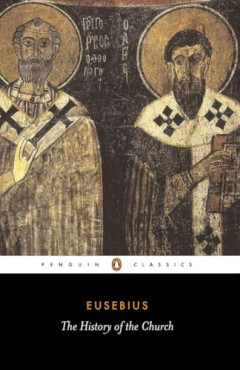
The History of the Church: From Christ to Constantine
Eusebius' account is the only surviving historical record of the Church during its crucial first 300 years. Bishop Eusebius, a learned scholar who lived most of his life in Caesarea in Palestine, traces the history of the Church from the time of Christ to the Great Persecution at the beginning of the fourth century, and ends with the conversion of the Emperor Constantine.
- Edition
- -
- ISBN/ISSN
- 9780140445350 / 0140445358
- Collation
- Softcover; 429 hlm.; 12.7 x 17.78 cm
- Series Title
- -
- Call Number
- 270.1
 Computer Science, Information & General Works
Computer Science, Information & General Works  Philosophy & Psychology
Philosophy & Psychology  Religion
Religion  Social Sciences
Social Sciences  Language
Language  Pure Science
Pure Science  Applied Sciences
Applied Sciences  Art & Recreation
Art & Recreation  Literature
Literature  History & Geography
History & Geography